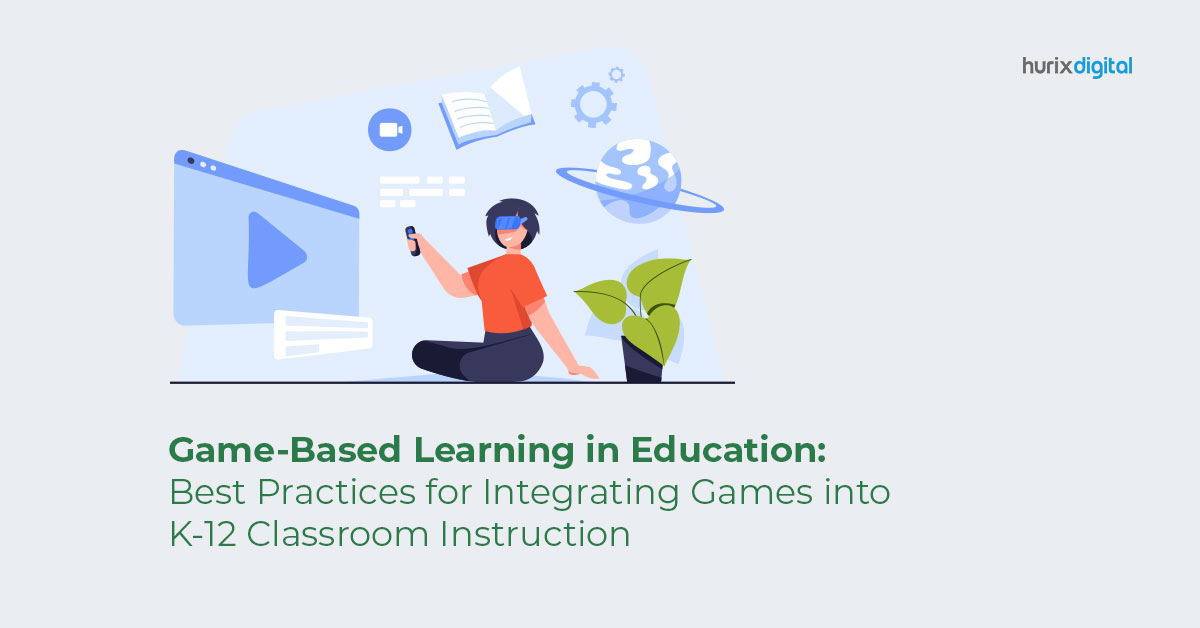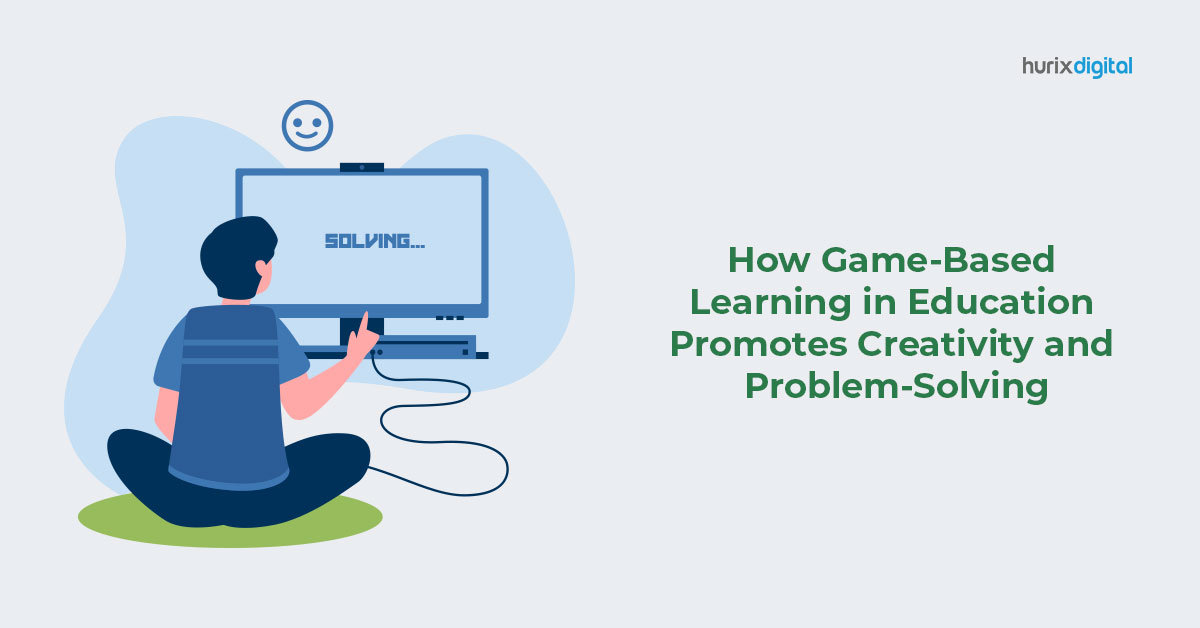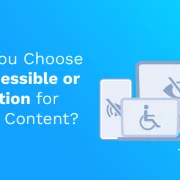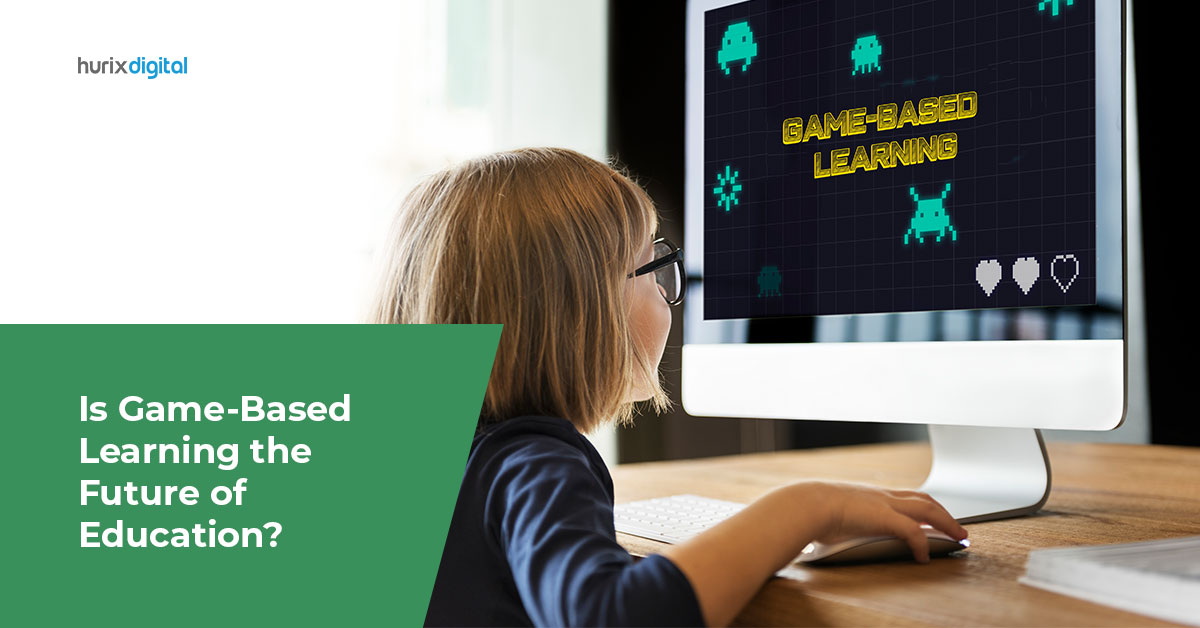
Is Game-Based Learning the Future of Education?
Summary
This article discusses whether game-based learning is the future of education, exploring its potential to engage students, foster creativity, and enhance learning outcomes.
Although game-based learning in education is not new, the use of game-based learning solutions is exploding in popularity. But will e-learning in education replace traditional schooling? Should it? Although top education tech companies may dream of a day when game-based learning in education reigns supreme, it is unlikely that it will replace traditional educational methods. While game-based solutions offer many benefits, traditional learning in classrooms also offers unique benefits.
Table of Contents:
- Benefits of eLearning in Education
- Game-Based Learning In Education Offers Personalized and Adaptive Learning
- Higher Education Technology Companies: Why Their Games Incorporate Real-World Application and Practical Skills
- Game-Based Learning in Education Should Accompany Traditional Classroom Instruction
- Conclusion
Benefits of eLearning in Education
Top education tech companies have worked tirelessly to develop game-based learning solutions that offer more than just entertainment for students. Quality educational video games, including those designed for e-learning in higher education, offer significant benefits for students.
1. Game-Based Learning Solutions Promote Engagement and Motivation
A significant advantage of game-based learning in education is the ability to captivate students’ attention. In doing so, students are more motivated to participate in their learning actively. Passive teaching methods, including traditional classroom lectures and textbooks, are only sometimes compelling enough to attract and maintain student interest.
By contrast, top education tech companies rightly discovered that the gamification of learning and the introduction of game-based learning in education led to enhanced engagement and motivation. When students are challenged in a game format, a sense of autonomy soon follows, prompting enhanced engagement and interest in furthering knowledge.
Indeed, higher education technology companies recognized that the more interactive, and more engaging a particular game was, the greater student interest. This finding has resulted in enormous demand for captivating game-based learning solutions.
2. Top Education Tech Companies Create Games That Deliver Enhanced Learning Outcomes
Top education tech companies operate on the premise that game-based learning in education must do much more than temporarily entertain students. To that end, developers at higher education technology companies have created game-based learning solutions that are entertaining, but more importantly, that promote deep learning while bolstering the development of critical skills.
It is not difficult to see why games used for e-learning in education, and especially games used for e-learning in higher education are successful at their objective of enhancing learning outcomes. Games developed by top education tech companies frequently include real-world scenarios that require players to complete complex problem-solving tasks. This requires student players to use critical thinking to make informed decisions.
Moreover, unlike traditional tests, essays, or Maths assignments which need to be graded by educators, game-based learning solutions offer immediate feedback on the decisions that students make in the games. This immediate feedback loop can correct deficiencies in problem-solving instantly, allowing students to learn from their mistakes in real-time, improving problem-solving abilities almost instantly.
Finally, all games developed by a leading education technology company will encourage collaboration among players. When students work together to solve challenges within games, or when they compete against another group of students in multi-player games, social interaction increases, and camaraderie soon follows. Social engagement, cooperation, collaboration, teamwork, and communication can all play a role in deeper learning, translating to improved test scores and grades.
https://www.youtube.com/embed/KGi9-FA9x9M?si=FQQ-v_CJXDdnCbJM
Game-Based Learning In Education Offers Personalized and Adaptive Learning
Self-paced learning offers unique opportunities and every educational technology company knows it. That’s why new game-based learning solutions provide students with personalized, adaptive learning experiences.
Using advanced algorithms and data analytics, top education tech companies create immersive learning experiences that accommodate the learning speed of diverse students. Higher education technology companies have invested heavily in state-of-the-art data analytics to develop algorithms that deliver customized content appropriate to the child’s learning capabilities. The result is game-based learning solutions that excel at tracking progress and identifying areas needing improvement, to offer a wholly personalized learning experience.
Games offered by top education tech companies will adjust difficulty levels in the games based on individual student performance. This is to safeguard students from feeling under-challenged, or academically discouraged. The byproducts of the adaptive nature of games developed by higher education technology companies are improved self-confidence, enhanced engagement with the subject matter, and ultimately academic success for students with diverse learning style preferences and abilities.
Higher Education Technology Companies: Why Their Games Incorporate Real-World Application and Practical Skills
Ask any experienced developer at a leading education technology company why their games incorporate real-world applications and you’re likely to get a similar response from all of them.
Contextualizing abstract concepts by framing them in real-world scenarios is very effective in helping students develop practical skills that are transferable to the real world. This is not only helpful in ensuring academic success but helps students develop skills necessary for life beyond the classroom.
Skills that are nurtured when real-world scenarios are used in game-based learning in education include:
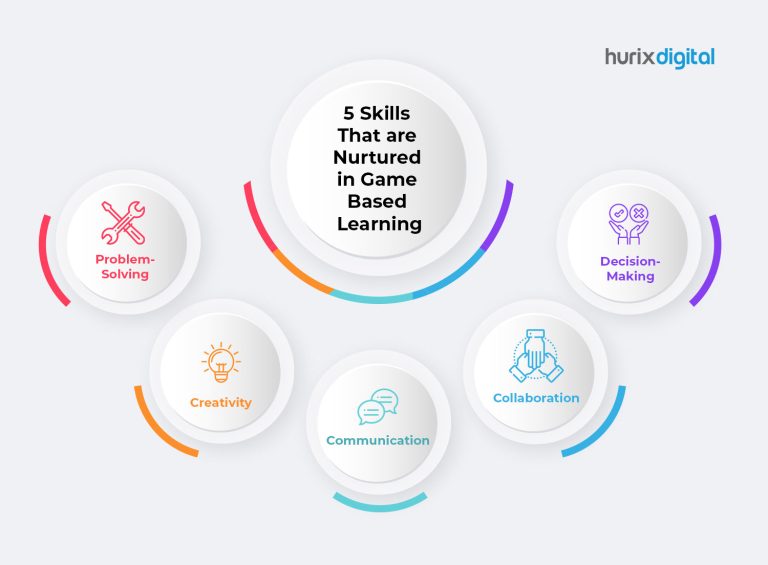
-
Problem-Solving
- Creativity
- Communication
- Collaboration
- Decision-Making
Of course, e-learning in education also helps students foment crucial computer literacy skills necessary to thrive in a digital world.
Game-Based Learning in Education Should Accompany Traditional Classroom Instruction
Widespread remote education during the height of the COVID-19 pandemic demonstrated that traditional classroom instruction is necessary for students. Studies clearly illustrate that students did not thrive academically when stay-at-home orders forced students to take all of their classes online.
Learning loss was widespread, test scores decreased, and learning growth slowed. Perhaps most tragically, the increase in students who dropped out of school increased exponentially. These academic damages suffered by children who were removed from school, and suddenly faced with exclusively remote learning may take years to resolve.
Moreover, studies now show that social-emotional skills were also stunted. Multiple studies reveal an uptick in childhood anxiety, inability to manage emotions, depression, eating disorders, substance abuse, and more. Other studies pointed to physical side-effects of entirely remote learning including visual problems such as myopia, dry eye, and visual fatigue. Suffice it to say, removing children from classrooms did not improve their health, well-being, or academic performance.
Conclusion
In closing, game-based learning in education, when coupled with traditional classroom instruction and teaching methods, is poised to revolutionize education in the future. As technology continues at its breakneck pace, students must be equipped to learn via game-based learning in education and in-person instruction.
Game Learning is an established education technology company that develops game-based learning solutions for PreK, Primary, and Secondary students. Game Learning has partnered with Hurix Digital to create specially-curated game-based learning endeavors for K12 students.
To learn more about Game Learning educational video games or to book a demo, send us an inquiry.
Also Read – Top 10 Advantages of Game-Based Learning
1. Why is game-based learning gaining popularity in education?
A. Game-based learning is gaining popularity due to its ability to increase student engagement, motivation, and retention of knowledge, as well as its potential to develop critical thinking, problem-solving skills, and collaboration.
2. Will game-based learning replace traditional teaching methods?
A. Game-based learning is not intended to replace traditional teaching methods entirely but rather to complement them and provide an additional tool for effective and engaging instruction.
3. What evidence supports the effectiveness of game-based learning?
A. Research has shown that well-designed game-based learning experiences can lead to improved learning outcomes, increased student motivation, and better retention of knowledge compared to traditional methods.
4. Does game-based learning require significant financial investment?
A. Implementing game-based learning can vary in cost, depending on factors such as the type of games used, technological requirements, and availability of resources. It is possible to utilize both low-cost and high-cost options.
5. What is the future outlook for game-based learning in education?
A. Game-based learning is expected to continue growing in popularity as technology advances, allowing for more sophisticated and immersive experiences. It will likely become a more integral part of the educational landscape, supplementing traditional teaching methods and providing engaging and effective learning opportunities.

Senior Vice President – Business Development
Over 25 years of experience in the edtech and workforce learning industry with strong skills in Business Development, Customer Relationship Management (CRM) and Strategy.

